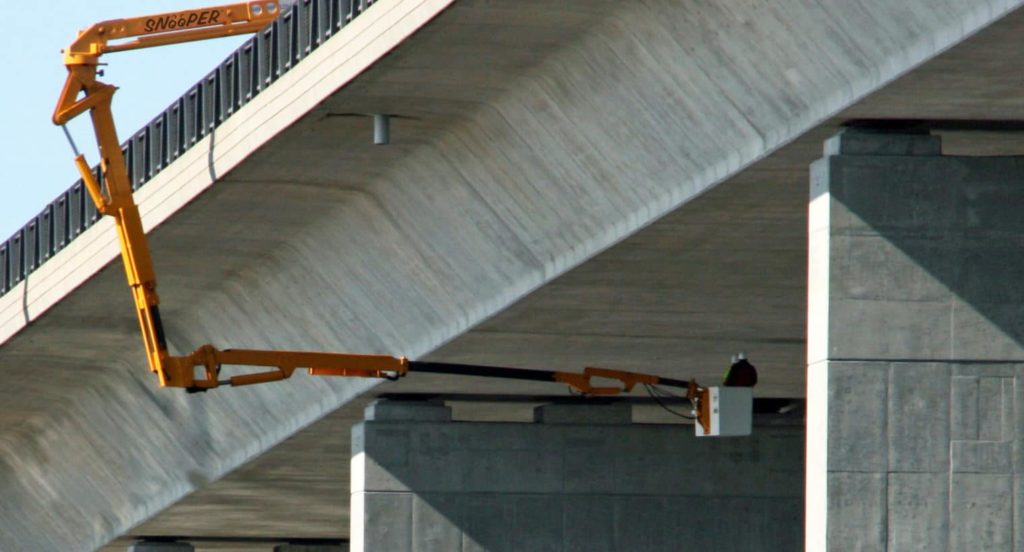This bill establishes programs within the Department of Transportaiton (DOT) to support the use of drones and other small, unmanned aircraft systems when inspecting, repairing, or constructing road infrastucture, electric grid infrastructure, water infrastructure, or other critical infrastructure.
Specifically, DOT must award grants to state, tribal, and local governments; metropolitan planning organizations; or groups of those entities to purchase or otherwise use drones to increase efficiency, reduce costs, improve worker and community safety, reduce carbon emissions, or meet other priorities related to critical infrastructure projects. Grant recipients must use domestically manufactured drones that are made by companies not subject to influence or control from certain foreign entities, including china and Russia.
DOT must also award grants to certain institutions of higher education for training studnts for careers using drones and related technologies.
Drone Infrastructure Inspection Grant (DIIG) Act of 2023, is a bill that aims to promote the use of drones for infrastructure projects in the U.S. The bill was introduced in the U.S. Congress by Rep Greg Stanton (D-AZ) and Garret Graves (R-LA), who are both members of the House Transportation and Infrastructure Committee.
The DIIG Act would authorize $200 million in competitive grants for state, local, and tribal governments to purchase or contract for approved drone technology to perform critical infrastructure inspection, maintenance, rehabilitation, or construction projects. The grants would cover up to 80% of the cost of the drone technology, and the applicants would have to provide a 20% match. The bill defines critical infrastructure as any system or asset that is essential for the security, public health, safety, or economic well-being of the nation.
The DIIG Act would also authorize $200 million in grants for institutions of higher education, including community colleges, to develop drone workforce training and education programs. The programs would include courses on drone operation, safety, regulation, data analysis, and maintenance. The programs would also involve partnerships with local employers and stakeholders to provide hands-on experience and job opportunities for students.
The DIIG Act is a bipartisan bill that recognizes the potential of drones to improve the quality and efficiency of infrastructure in the U.S. The bill’s sponsors argue that drones are a common-sense tool to inspect and care for aging infrastructure, and that the U.S. must invest in supporting the drone industry and growing workforce2. They cite examples of how drones have been used for infrastructure projects in their states, such as inspecting bridges, roads, dams, power lines, pipelines, and more.
The DIIG Act is supported by the Association for Uncrewed Vehicle Systems International (AUVSI), which is the world’s largest non-profit organization dedicated to advancing the unmanned systems and robotics community. AUVSI says that drones are indispensable tools for critical operations, and that the U.S. cannot afford to fall behind in the drone industry’s ability to attract capital, investment, and workforce3. AUVSI also says that drones can help reduce greenhouse gas emissions by replacing vehicles and helicopters that consume fossil fuels.
The DIIG Act is currently pending in the House Transportation and Infrastructure Committee. If passed, it would be administered by the Department of Transportation (DOT) and the Federal Aviation Administration (FAA). The DOT and the FAA would establish criteria and guidelines for the grant applications and awards. The DOT and the FAA would also monitor and evaluate the performance and outcomes of the grant recipients and report to Congress.
The DIIG Act is an important bill that could have a significant impact on the future of infrastructure in the U.S. By providing funding for drone technology and training, the bill could help improve the safety, reliability, and sustainability of infrastructure systems across the country. The bill could also help create jobs and opportunities for workers in the drone industry and related sectors.
If you want to learn more about the DIIG Act or how to apply for its grants, you can visit [https://www.congress.gov/bill/117th-congress/house-bill/5315] or [https://dronelife.com/2023/05/31/the-drone-infrastructure-inspection-grant-diig-act-of-2023/]. You can also contact your local representatives and urge them to support this bill. Together, we can make a difference in improving our infrastructure with drones.
